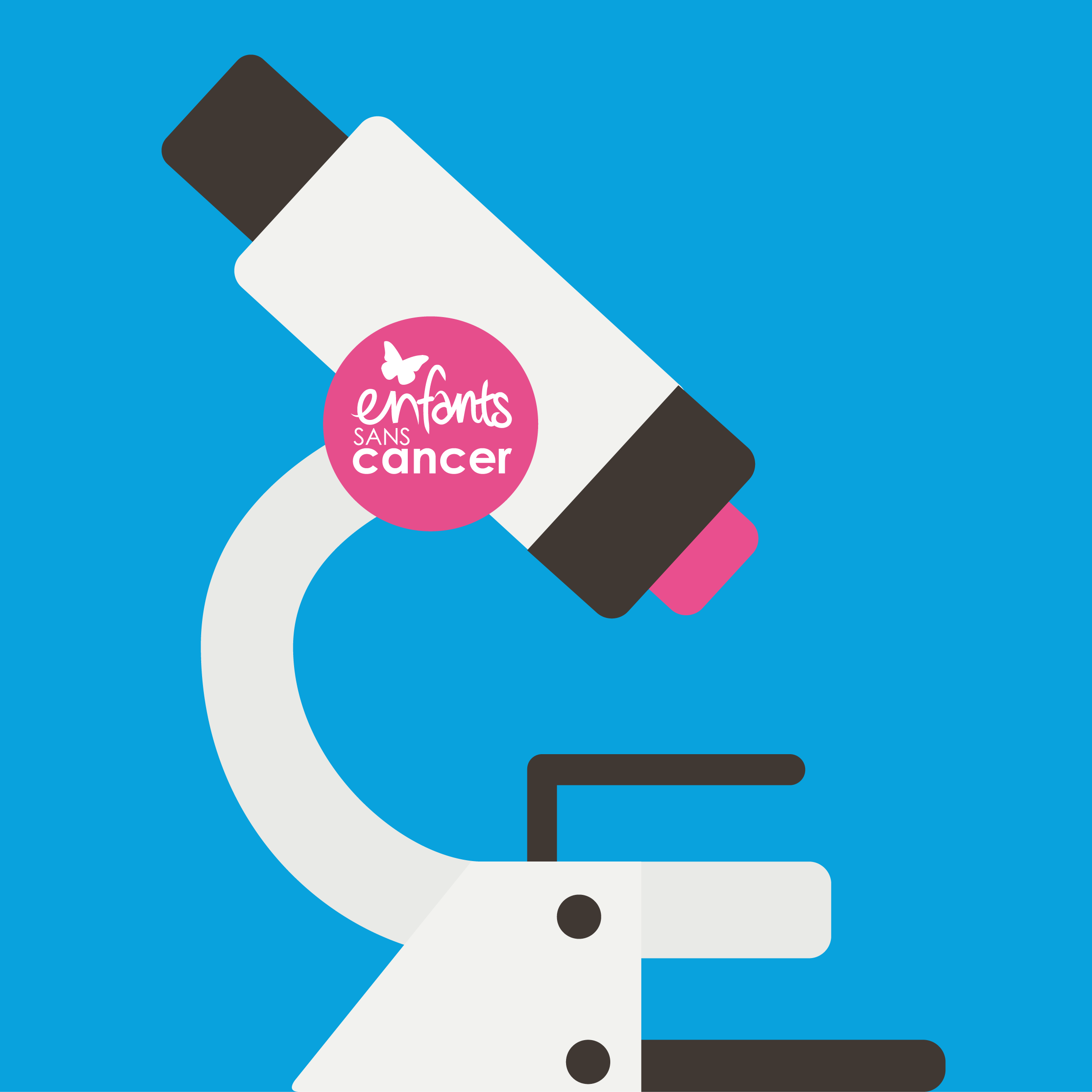
RESEARCH OF NEW TREATMENTS FOR HIGH RISK NEUROBLASTOMA IN RELAPSE
This trial was cofinanced by the 2013 and 2018 Children without Cancer races.
BEACON – a randomised phase IIb trial of BEyACizumab added to temozolomide ± IrinOtecan for children with refractory/relapsed Neuroblastoma
About Neuroblastomas
A neuroblastoma is a malignant extracranial tumor that develops from primitive nerve cells called neuroblasts, which normally form the nerve cells in the body. This type of solid tumor is one of the most common in children.
This disease represents 10% of solid tumors in children under 15 years old and mainly affects young children, as it is generally diagnosed before the age of five (90% of cases). More than half of the children present with metastatic disease at the time of diagnosis. The exact causes of neuroblastoma are unknown, but it appears that genetic and environmental factors play a role in its onset.
Learn more about this disease: link
BEACON: 10 years of fighting high-risk relapsed neuroblastoma
BEACON is a phase II trial that started in 2014 and is still ongoing. Thanks to its results and international scope, this trial has defined the overall therapeutic strategy in Europe for high-risk and relapsed neuroblastoma.
The aim of the first part of the study was to determine the therapeutic effect of Bevacizumab in combination with chemotherapy (Temozolomide, Irinotecan-Temozolomide, or Topotecan-Temozolomide). Bevacizumab is a therapeutic antibody that neutralizes VEGF, a growth factor for blood vessels. This protein is essential for the development of the tumor vascular network, which is indispensable for tumor growth. Additionally, the study aimed to investigate whether the addition of Irinotecan or Topotecan to Temozolomide increased the efficacy of chemotherapy. This study aimed to determine which combination provided the best response (complete or partial response) within 18 or 24 weeks and also to estimate the side effects.
160 patients aged 1 to 21 years with high-risk relapsed or refractory neuroblastoma were included in one of the two treatment arms: Chemotherapy without Bevacizumab (single molecule or in combination) and Chemotherapy with Bevacizumab (Temozolomide, Irinotecan-Temozolomide, or Topotecan-Temozolomide). Among all the combinations, Bevacizumab combined with Irinotecan-Temozolomide offers the best therapeutic solution to date (tolerable toxicity, an ORR of 23%, a 1-year PFS of 67%, and a median survival of about 3 years). This therapy is now recognized as the reference treatment for neuroblastoma in the UK.
BEACON Immuno
The goal of this project is to combine conventional chemotherapy (Topotecan, Irinotecan, Temozolomide) with Dinutuximab beta. This therapeutic antibody targets GD2, a ganglioside highly present on the surface of neuroblastoma cells. Thus, this interaction aims to enhance the anti-cancer immune response.
65 patients have been recruited for this trial, which has opened in 40 centers located in 9 countries (UK, France, Spain, Denmark, Ireland, Austria, Netherlands, Switzerland, and Belgium). Patients received chemotherapy alone or combined with Dinutuximab beta (the Temozolomide-only arm closed in January 2020 for the entire BEACON project due to the lack of efficacy of the molecule). For patients who received Dinituximab beta in addition, the response rate to the drug increased from 18.2% to 34.8% (a higher rate than in the BEACON 1 trial). However, long-term survival does not seem to have improved.
BEACON Bio
This international collaborative project, funded as part of the Fight Kids Cancer 2021 call for projects, will attempt to allocate patients into risk groups defined based on their molecular specificities (or biomarkers) and treatment resistance. A biomarker is generally a protein found in the blood or tissues that is specific to a disease. Its presence and quantity can be a diagnostic, prognostic indicator, and guide the appropriate treatments for patients.
This project will study the impact of genetic and epigenetic factors on relapse and treatment resistance, which will help identify new combinations of molecules in the hope that they will be more effective.
BEACON 2
The two promising treatments tested in BEACON 1 and BEACON IMMUNO, combined with chemotherapy, are being tested in combination in the BEACON 2 trial. Additionally, other innovative drugs will also be included in the therapeutic panel offered to patients. This trial will establish a reference treatment for cases of relapsed pediatric neuroblastomas. It is, therefore, an essential step to change practices so that treatments can be widely administered by doctors across Europe after the trial. This program will also develop new combinations of drugs that will improve the efficacy of immunotherapy, curing more children with fewer side effects. This program was selected for its excellence as part of the 2022 Fight Kids Cancer Call for Projects.
This project was funded through donations raised during the Enfants sans Cancer races in 2013, 2018, 2021, and 2022.
Follow-up of the BEACON trial
Recruitment phase for BEACON 1 and IMMUNO completed and BEACON 2 is underway. Scientific presentations of BEACON:
- Annual ASCO conference in Chicago (USA) in June 2019.
- Annual ESMO congress in Barcelona at the end of September 2019.
- Annual SIOP conference in Lyon (France) in October 2019.
- Publication: Bevacizumab, Irinotecan, or Topotecan Added to Temozolomide for Children With Relapsed and Refractory Neuroblastoma: Results of the ITCC-SIOPEN BEACON-Neuroblastoma Trial – PubMed (nih.gov)
Summary of the trial
- Sponsor: University of Birmingham, UK
- Principal Investigator: Dr. Lucas Moreno
- Program duration: July 2013 – July 2026
- Recruitment: 385 patients
- Countries involved: UK, France, Ireland, Spain, Italy, Netherlands, Denmark, Austria, Switzerland, Germany, Belgium
- Imagine for Margo funding: €2,863,278 (including €2 million funded by Fight Kids Cancer)
- Other co-funders: Cancer Research UK and Solving Kid’s Cancer
Doctor Dominique Valteau-Couanet and Professor Gilles Vassal explain the program: (in French)
Professor Pamela Kearns speaks about the new trial arm BEACON-IMMUNO (from 2″32): (in French)

